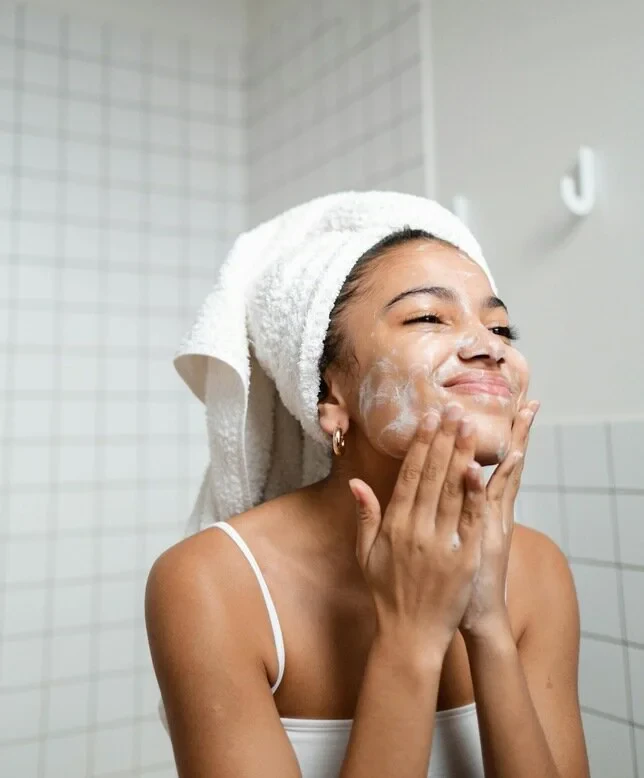Acne
Skin & Dermatology
Acne doesn’t have to control how you feel about yourself. At SwiftMedi, we provide fast access to proven treatments that tackle breakouts, reduce inflammation, and prevent new spots from forming - so you can take back control of your skin.

Frequently Asked Questions
What is acne and what causes it?
Acne happens when hair follicles become blocked with oil and dead skin, leading to blackheads, whiteheads and inflamed spots. Hormones often drive it, causing the oil glands to become more active. Prescription options can help when breakouts are frequent or painful.
Can acne leave permanent marks or scars without treatment?
Yes. Deep or inflamed acne can cause long-term marks or scarring if left untreated. Early access to effective treatment helps protect the skin and prevents repeated flare-ups from causing permanent changes.
Is online treatment safe for cystic or severe acne?
Online treatment can help moderate acne, but very severe or widespread cystic acne may need in-person assessment. A prescriber will review your symptoms and guide you safely, referring you if stronger treatments like isotretinoin are required.
Why do some people get persistent acne even in adulthood?
Adult acne is common and usually linked to hormones, stress or genetics. Some people continue producing excess oil, leading to deep or recurring breakouts. Adult acne often responds well to prescription treatment when standard products fail.
When should someone consider prescription acne treatment?Prescription treatment is helpful when acne is painful, leaving marks, affecting confidence or not improving with pharmacy products. Medicines such as lymecycline, Duac or Differin can target inflam
Prescription treatment is helpful when acne is painful, leaving marks, affecting confidence or not improving with pharmacy products. Medicines such as lymecycline, Duac or Differin can target inflammation more effectively. A clinician can assess which option suits your skin.
What treatments actually work for acne?
Effective treatments include benzoyl peroxide, topical antibiotics, retinoids like adapalene, combination gels such as Duac or Treclin, and oral antibiotics for deeper acne. The right approach depends on severity, skin sensitivity and where your acne appears. A clinician can guide your best option.
Is acne caused by poor hygiene or diet?
Acne isn’t caused by being unclean. Washing more often usually worsens irritation. Diet does not cause acne, but high-sugar foods may trigger flare-ups in some people. Treatment focuses on calming inflammation, unblocking pores and reducing bacteria.
When should I see a clinician about acne?
You should seek help if acne is painful, leaving marks, affecting confidence or not improving after several weeks of over-the-counter treatment. Early assessment helps prevent scarring and ensures you receive the right medication.
Can I get acne treatment online in the UK?
Yes. A UK-registered prescriber can assess your symptoms through an online consultation and recommend suitable treatments. Options may include topical antibiotics, retinoids or oral medicines depending on severity. Proper assessment ensures safe, personalised care.
What should I do if over-the-counter acne products haven’t helped?
If pharmacy products such as benzoyl peroxide haven’t helped, prescription treatments can target inflammation more effectively. Options include retinoids like adapalene, antibiotic gels or oral medicines for deeper acne. A clinician can choose a treatment that matches your skin pattern and severity.
Which prescription acne treatment works fastest?
Combination treatments like Duac can work quickly for red, inflamed spots, while retinoids such as adapalene help prevent new breakouts. Oral antibiotics may help deeper acne within several weeks. The fastest option depends on the type of acne and skin sensitivity.
Is lymecycline or doxycycline better for my type of acne?
Both medicines treat deeper, inflamed acne. Some people respond better to one than the other, depending on their skin pattern, gut tolerance and other medicines. They are usually combined with a topical treatment for best results. A clinician can advise the right choice.
Can topical treatments like Duac or Treclin help hormonal acne?
Do I need both an oral antibiotic and a topical treatment?
Many people benefit from using the two together because they target acne in different ways. Oral antibiotics reduce deeper inflammation, while topical treatments prevent new blockages. Combined therapy is often recommended for moderate or persistent acne.
If you have any questions, concerns, or need advice, our team is always available to help, just as you'd expect from your local pharmacy.